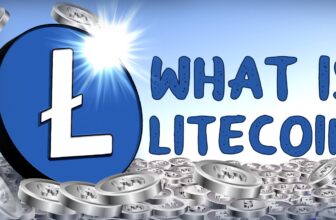
Are you approaching retirement? Are you thinking of working longer? Do you need to work longer? As you approach retirement, you’re likely looking forward to plunking down in a beach chair in Hawaii, sipping on margaritas.
The reality is much more sobering: people have to work past retirement age. Retirement can bring changes to your tax situation. If you are on the cusp of retirement, or are thinking about it, you might want to explore how to manage your taxes for your retirement strategy.
Many articles on retirement focus on increasing the amount you have saved for retirement, but in this article, we’ll focus on something equally important: minimizing your taxes during retirement.
Table of Contents
Understand Your Retirement Income Sources

Source: reportei.com
Before figuring out how much you have saved for retirement, it’s best to evaluate where that money is coming from. There are a lot of sources that sweet retirement money could come from, including:
- Social Security: Social Security is a significant income source for many retirees. Your income determines how much you get from Social Security. The benefits may also depend upon federal income tax. Really, it all varies.
- Pensions and Retirement Accounts: If you have a 401(k)s or an IRA, the money from these accounts are usually taxable when withdrawn in retirement.
- Investment Income: investments, dividends, interest, and capital gains, can all be subject to various tax rates. Again, this depends on your overall income.
- Part-Time Work: Some retirees choose to continue working part-time. This adds to their taxable income.
Understanding these income sources helps develop a comprehensive tax-efficient retirement strategy.
Utilizing Tax-Advantaged Accounts
It’s always good to contribute to a 401(k)s or IRA, during your working years. These are great tax advantages. Consider the following:
- Roth IRA Conversions: Consider converting traditional IRA funds into a Roth IRA. You’ll pay taxes on the amount you convert to a Roth IRA, of course, but Roth IRAs offer tax-free withdrawals in retirement. You pay a little now, and have a lot more for retirement, later.
- Required Minimum Distributions (RMDs): Once you reach 72, you’ll need to take the required amount out from your traditional retirement accounts. These amounts are taxable. You can reduce your RMDs by utilizing what’s known as the Qualified Charitable Distribution (QCD) strategy. Simply put, this allows you to donate up to $100,000 from your IRA to a qualified charity tax-free. If you’re feeling charitable, this is something you may want to consider during your retirement.
Managing Your Withdrawals
Strategically managing withdrawals from your retirement accounts can have a significant impact on your tax liabilities. Here are some strategies to consider:
- Tax Bracket Management: It’s best to withdraw funds from tax-advantaged accounts to stay within lower tax brackets. It’s a simplistic way of saying: managing your income, means that you can minimize the tax rate on your withdrawals.
- Sequence of Withdrawals: Consider the sequence in which you withdraw from various accounts. Start with withdrawing money from taxable accounts, then move to tax-deferred accounts. Lastly, withdraw from tax-free accounts like Roth IRAs. This can help you delay paying taxes on your retirement funds.
- Delay Social Security Benefits: Delaying your Social Security until your full retirement age or beyond increases your monthly benefit amount while at the same time, minimizing taxable income from other sources.
Take Advantage of Tax Credits and Deductions

Source: blog.sevenponds.com
There are several tax credits and deductions you can leverage to reduce your tax liability:
- Standard Deduction: If your deductions don’t exceed the standard deduction amount, that helps reduce the amount you of tax you pay on your income.
- Medical Expenses: Medical expenses that exceed 7.5% of your adjusted gross income (AGI) can be deducted. You know that there are lot of retirees who have health problems, so this is beneficial.
- Senior Tax Credit: Some states offer tax credits or exemptions specifically for seniors. This further reduces your tax burden.
- Earned Income Tax Credit (EITC): If you continue to work in retirement and have a lower income, you may be eligible for the EITC, which can provide valuable tax savings.
- Charitable Contributions: Donating to qualified charities can reduce your taxable income if you itemize your deductions. There are thousands of worthwhile charities to donate to. Make that part of your retirement plan: strategic charitable donations to maximize your deductions.
Plan for Estate Taxes
Where does estate planning fit into all of this? Here are some strategies to consider for minimizing estate taxes:
- Annual Gifting: Reduce your taxable estate by gifting assets to your heirs tax-free. This happens while you’re alive, obviously.
- Estate Tax Exemption: Keep an eye on the federal estate tax exemption limit. Proper estate planning can help you take advantage of the exemption and reduce any potential estate taxes.
- Trusts: Consider establishing trusts, such as a revocable living trust or an irrevocable life insurance trust (ILIT), to protect your assets and potentially reduce estate taxes.
Continuously Review and Adjust Your Plan

Source: warnerorthopedics.com
The tax landscape is always subject to change: people are always looking to reduce the amount of taxes they owe, and it’s not only during the retirement phase. Keep updated on tax changes that could affect your retirement, and talk to your tax advisor/financial planner if you need advice.
Review your investment portfolio, how much you spend each month, and update your estate plan as needed.







